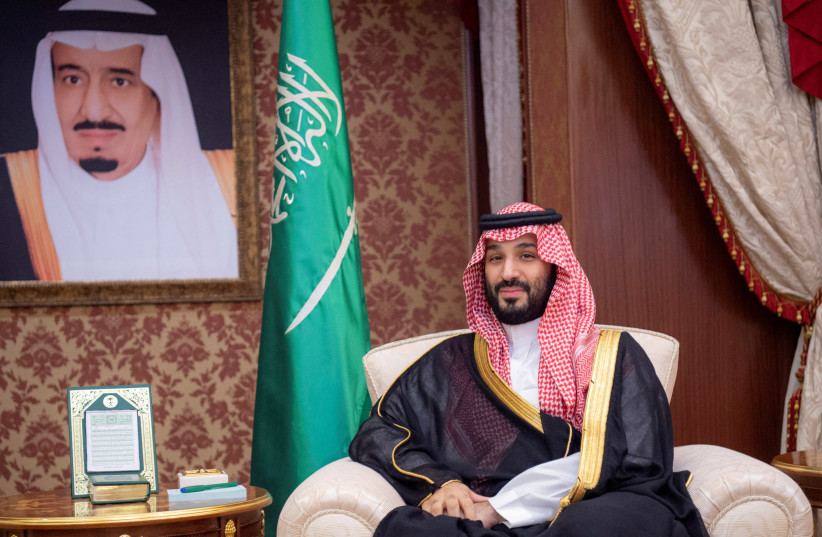When Mossad Director David Barnea met with a variety of senior White House officials and CIA Director William Burns a couple of weeks ago to help frame the trilateral Israel-Saudi Arabia-US deal, whose negotiations have finally gone public, he was not the first in such a role.
Although it took until May 2022 for the Israeli censor to confirm meetings by former Mossad directors Meir Dagan (2002-2011), Tamir Pardo (2011-2016), and Yossi Cohen (2016-2021) with top Saudi officials, The Jerusalem Post and some other media outlets have known about the meetings for years.
There have always been debates about the identity of the true architect or architects of the Abraham Accords, and those same debates continue now about who might be molding together a potential new grand bargain with Riyadh.
In general, Mossad’s role in the Abraham Accords and in relations with the Saudis, and specifically Barnea’s role since taking over the agency in June 2021, has gotten less attention.
The Jerusalem Post understands that Barnea has been deeply involved in progress between Israel and many countries with whom it currently has no diplomatic relations in the region.

So his latest trip to Washington to advance talks regarding the Saudis is not so much of a surprise, as much as it is to be expected.
So why does it seem so surprising and exciting?
In theory, all of Mossad’s activities are supposed to be kept secret, with no one hearing about their actions until decades later.
Barnea did not leak his latest meeting, but likely it was American officials.
Until the 1990s, not even the Mossad chief’s identity was public, and even now, a Mossad director is the only current member of the Mossad whose name can be printed.
In contrast, Israeli prime ministers, American presidents, and their counterparts in Sunni countries, such as Mohammed Bin Zayed (MBZ) of the UAE or Mohammed Bin Salman (MBS) of Saudi Arabia, are all politicians who have looked to collect credit for the deals.
Besides the heads of state, who are the final decision-makers, a wide range of diplomats have also authored books or given on-the-record interviews about their travels and the ups and downs of their negotiations to make the Abraham Accords happen.
Many of these accounts are true, and there is plenty of credit to go around, but all of this can easily cover up Mossad’s powerful role.
There is also the Iranian issue.
Barnea, Cohen, and Pardo, at different points, provided intelligence and briefings that either nixed a nuclear deal with Iran, delayed it, or helped reshape it in a way that was more favorable to Israel.
Iran is also the issue where Israel has allowed Cohen and Barnea to speak (slightly) more publicly about the spy agency’s activities and successes.
Mossad's diplomacy
This can give the impression that Mossad is really only effective in countering terrorism but not in promoting peace.
Despite all of these reasons to downplay Mossad’s role in diplomacy, Barnea and his recent predecessors have been deeply involved.
Although other Israeli diplomats have also been involved, and some of them might even be more involved in negotiating drafts of a final deal, Barnea has played a key role in maintaining the respect, desire, and vision of a deal both in Riyadh and Washington.
Also, many aspects of any deal with the Saudis will involve defense products, security alliances, and evaluations of the impact on Israeli national security for Jerusalem and Washington by providing certain capabilities to MBS.
There have also been innumerable times when Barnea has had to metaphorically “hold the hand” of foreign officials to not lose focus on the big picture of common national interests after provocative actions or statements by some more extreme members of the current coalition.
On such issues, defense experts such as Barnea are primary, whereas regarding how concessions toward the Palestinians work into the picture, diplomats may have a larger role.
In light of the above, Barnea’s latest visit to Washington fits into the larger picture of his role in the Mossad as being not just a “gadget-loving killing machine,” as one article dubbed him.
Rather, it suggests he has also been highly effective in promoting a potential future historic three-way deal, which could then lead to normalizing Israel’s relations with much of the Sunni world.
